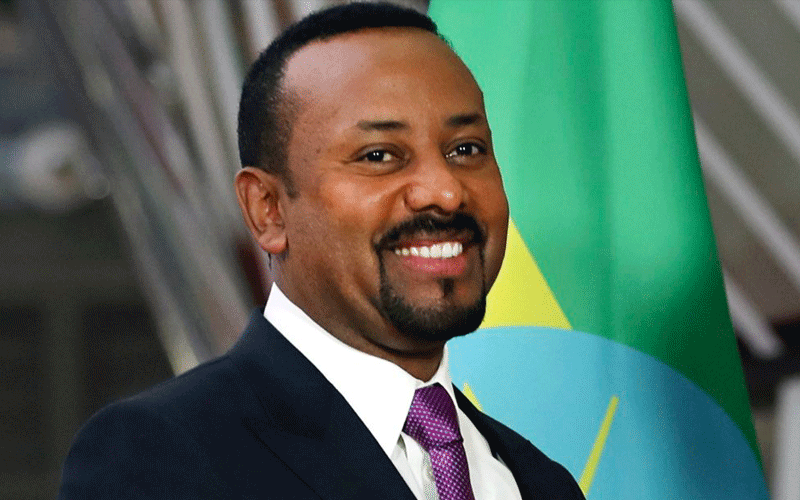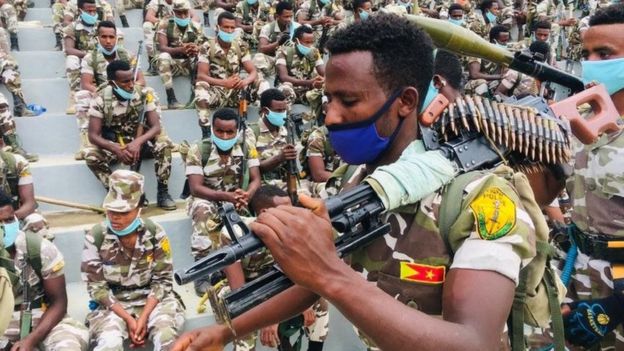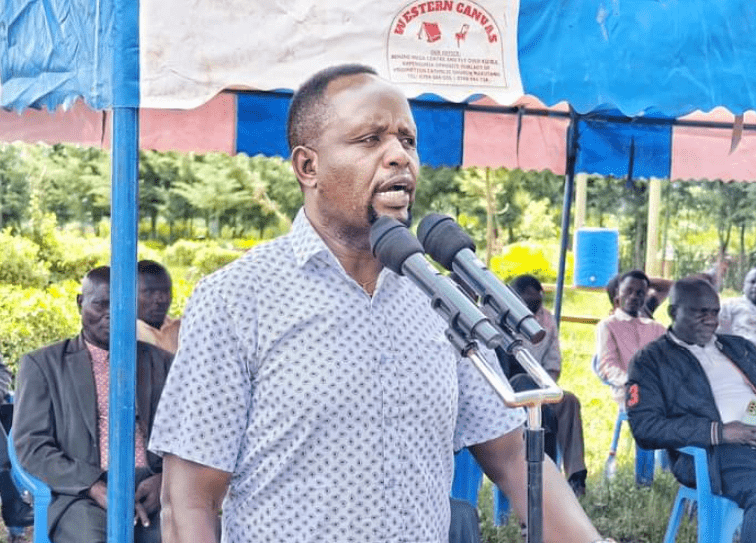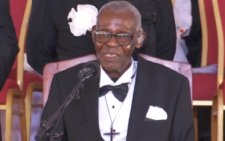Irony of Nobel Peace laureate Abiy and war-torn Ethiopia

In April 2018, Abiy Ahmed became the Prime Minister of Ethiopia, taking over from the unassuming Hailemariam Desalegn, who resigned after a tumultuous period of unrest in the country. In quick order, Abiy set out to “transform Ethiopia.”
He appointed a gender-balanced Cabinet, and released political prisoners.
He unbanned political groups previously branded as terrorists. He normalised relations with Ethiopia’s intractable foe, Eritrea’s Isaias Afeworki.
He gave a new face to Ethiopia’s leadership, long used to dour-faced hardline leaders.
He faced down hardliners in the country’s security system. He even started angling to become the regional peace broker.
For a while, Abiy seemed to be riding the white stallion. The world was so enamoured of the young, highly educated, fresh-faced ‘pacifist, “democrat,” and gender rights champion,” that the Oslo-based Nobel Committee promptly named him the Nobel Peace Prize laureate for 2019.
At 42, the world was at his feet. The future could not be brighter. Then it all started coming unstuck.
In June this year, a popular Oromo musician, Haacaaluu Hundeessaa, was assassinated by a gunman in the capital Addis Ababa, sparking violent protests in the capital and the Oromia region.
In a government crackdown, hundreds died, and thousands, including key Oromo political figures, were arrested.
Oromo is Ethiopia’s largest ethnic group, and have long complained of political and economic marginalisation.
Full-scale attack
Just as the blazing fires lit by this assassination were beginning to simmer, the government announced that the national polls, scheduled for August 2020, would be postponed until further notice due to Covid-19.
One of Ethiopia’s administrative regions. Tigray, baulked. They announced that not only would their regional elections go ahead, but they would no longer recognise Abiy’s leadership as his mandate had expired.
In defiance, Tigray held their elections in September. Things went south very rapidly from that point.
As tensions rose, Abiy’s government announced that Tigray had attacked one of the federal government’s military bases in the region.
The government then launched a full-scale attack on Tigray province, in what it termed a surgical strike at the beginning of this month.
The war rages with no end in sight. Hundreds have reportedly died, towns have been destroyed by the aerial bombing by the federal government, and tens of thousands of refugees have crossed over into Sudan.
A humanitarian crisis is brewing in both Sudan and Tigray, where aid workers are unable to access due to insecurity.
Shockingly, Abiy remains obstinate, rejecting calls by regional leaders, the UN and even the Nobel Committee that made him their peace laureate for 2019, for dialogue. Instead, he has dug in, convinced that he must crush the Tigray People’s Liberation Front.
And even were he to crush Tigrayan forces militarily, he will never rule that region without its consent.
Has Abiy bitten off more than he can chew? Oromo remains restive, with the murder of Handeessaa still unresolved, and the wounds still raw.
A full scale war with Tigray has now completely taken over the focus of the federal government from that ball.
In the meantime, the tension with Egypt over the Grand Ethiopian Renaissance Dam is raging, as Ethiopia has now moved to start filling up the dam, a move that Egypt has warned could lead to war.
It is time for Abiy to step back. He seems to have closeted himself with the very hardliners who have ruled Ethiopia with an iron fist for decades, and have left a highly unsettled population of 110 million people.
As it is, he has backed himself into a corner, from which he cannot extricate himself without huge cost in terms of casualties and resources. His towering global stature has taken a huge blow, possibly terminal.
Only he can bring Ethiopia back from the brink. It would be the ultimate irony if the Nobel Peace Prize laureate ended up being the one who finally presided over the disintegration of Ethiopia simply because he was too bullheaded to allow peaceful conflict resolution over the militaristic approach.
This militaristic approach is not working anywhere in the world anymore. — [email protected]











